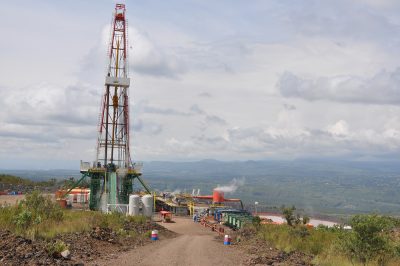British Columbia in Canada missing out on investments in geothermal
A recent article looks into the lack of geothermal development in Canada, particularly in the province of British Columbia, despite a number of geothermal companies listed on the Toronto Stock Exchange.
In an article referencing the case of the Basel geothermal project, the author looks into the lack of geothermal development in Canada, particularly in the province of British Columbia, despite a number of geothermal companies listed on the Toronto Stock Exchange.
“Canada has already had 100 years of success with deep drilling techniques, said Alison Thompson, chairperson and founder of Canadian Geothermal Energy Association (CanGEA).
Despite having world-class resources, Canada’s level of geothermal activity has remained eerily silent compared to other places in the world.
Thompson said it’s been at a standstill in B.C. because the provincial government is not currently issuing permits or leases.
“We continue to work with industry on a weekly basis to try and get the government to re-open the program,” she said.
Meager Creek, B.C., west of Pemberton, is Canada’s only geothermal site to hold an active lease. It was originally drilled by BC Hydro in the 80s. It actually is in proximity to the site of the current Olympic games and could have provided electricity to make these rather “green” games.
A project summary released by Western GeoPower Corp. in 2007 said exploration suggests a geothermal area of 4.5 to 7.5 square kilometres and an average temperature of 220 to 240 degrees Celsius, qualifying the project as having 100 MW or more of potential development capacity.
Western GeoPower Corp. merged with Polaris Geothermal, Inc., RAM Power Corp., and GTO Resources under the umbrella of RAM Power Corp., headquartered in Reno, Nevada in 2009.
RAM Power Corp. declined comment on the current status of the Meager Creek Project.
Jake Jacobs, media relations for Energy, Mines, & Petroleum Resources said the ministry will be holding a public disposition for geothermal rights in March 2010 and intends to hold two more later in the year.
“A growing interest in geothermal energy resulted in the ministry reviewing how to move forward with geothermal tenuring,” he said.
“The upcoming disposition is the start.” In the meantime, B.C. is losing potential investment dollars.
“Most of the companies actively involved with geothermal power generation that are trading on the Toronto stock exchange are Canadian, and most tried to do work in B.C., which has the country’s best assets,” said Thompson.
“But, they eventually went elsewhere because there is only so much public money a company can raise before the time has come and gone.”
Unlike wind and solar power, which are cyclical and offer low production guarantees, geothermal power has 100 per cent capacity all the time and long-term environmental risks are low, said Arellano.
“If you imagine the earth as being the size of a balloon, the depth of drilling the industry is doing is not thicker than the skin of the balloon in terms of scale,” he said.
“There is a whole lot of energy in the earth and we are just catching the ‘burps and sneezes’ so to speak.”
Source: Journal of Commerce











